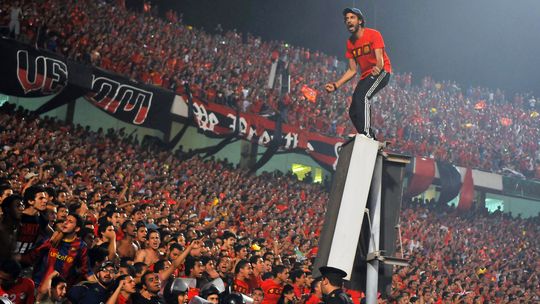Numerous Egyptian human rights organizations announced that security forces released dozens of those arrested in the recently held demonstrations of 20 and 27 September, without any charges against them.
According to the Egyptian Commission for Rights and Freedoms (ECRF), the Egyptian security authorities released dozens in the governorates of Alexandria, Dakahlia, and Gharbia, while the Egyptian Center for Economic and Social Rights asserted the release of dozens in the governorates of Suez, Beheira in addition to the Egyptian capital, Cairo.
The Egyptian human rights centres said that security forces detained about 2,000 people, connected to the demonstrations demanding the departure of Egyptian President Abdel Fattah Al-Sisi.
The Egyptian Attorney General issued a statement a few days ago, announcing the continuation of the investigation of about 1000 people on charges of inciting demonstrations in public squares and roads, but said he would release “those who put themselves on suspicion without intent to commit crimes”.
Human rights organization Amnesty International issued a statement criticizing the detention of hundreds of protesters and demanded their release.
Opponents of Egyptian President Abdel Fattah Al-Sisi protested on 20 and 27 September to demand his departure from power, while supporters demonstrated on 27 September to express their support for him.
Hundreds of people demonstrated on 20th September’s night in Cairo and other Egyptian cities, such as Alexandria and Mahalla, in response to calls launched via social media that asked people to demand ousting President Abdel Fattah Al-Sisi from power. Several media reports indicated that Police arrested dozens of demonstrators.
The 20th September’s demonstrations took place in some Egyptian cities, including Cairo and Alexandria, but the police quickly dispersed them.
Videos posted on social media showed dozens of people gathered in Alexandria, Mahalla, and Damietta in the Nile Delta as well as in Suez.
Footage of the demonstrations, in which dozens chanted against Sisi, were posted online, using the Arabic hashtag of #Tahrir Square.
In Cairo, arrests took place during a night demonstration in Tahrir Square, the centre of the 25 January revolution against President Hosni Mubarak’s rule in 2011. Police fired tear gas at protesters around the square, and there was heavy security deployment, according to eye witnesses.
Among those calling for the demonstration was an Egyptian residing in Spain, Mohamed Ali, 45. The construction contractor who posted videos from Spain calling for Sisi to be toppled. Through a series of videos that went viral on social media, Ali accused the president and the army of wasting public money on useless projects and in building presidential palaces.
Ali accuses the Egyptian army of owing him millions of pounds in return for projects carried out by his company ‘Amlak Contracting’. The video has been viewed millions of times and has received many interactions from social media users in Egypt.
At a conference held recently in Cairo, Sisi denied accusations of corruption, saying he is “honest, faithful and loyal.” Sisi said the accusations were “lies and slander.” However, Ali said he would continue to publish videos until authorities respond to them in an official form.
Protests in Egypt are severely restricted by a law passed in November 2013, a few months after the ousting of the Islamist President Mohamed Morsi in July the same year.



